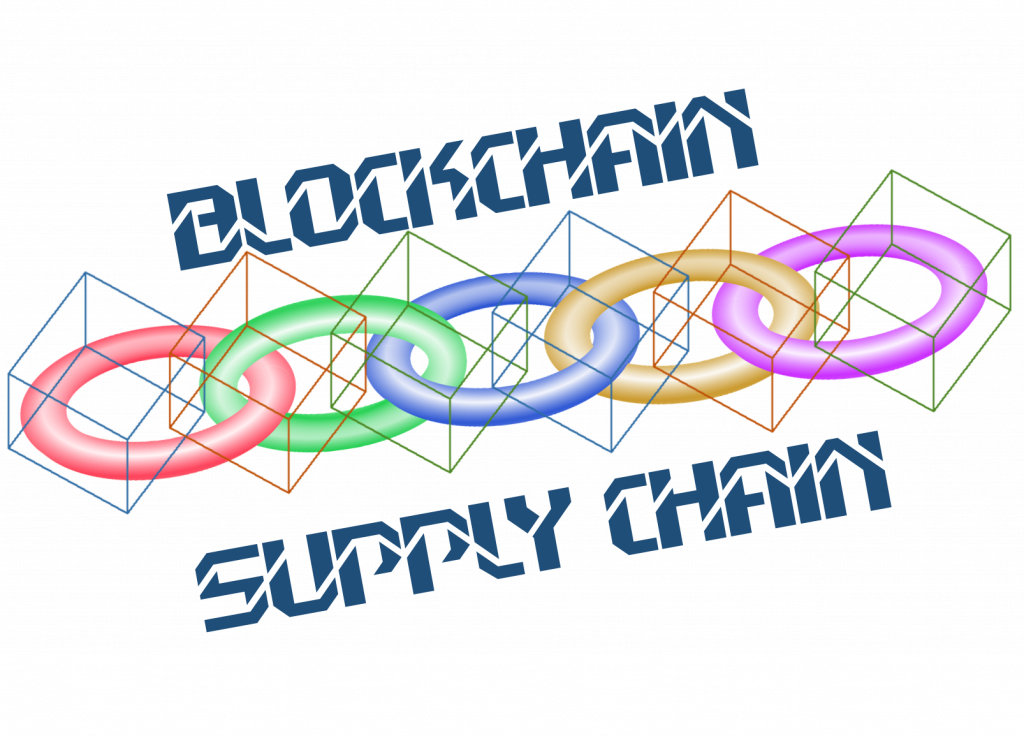Blockchain technology has stirred a lot of interest over the past year and a new study from eft indicates that interest is growing. Peter Buxbaum (@peterbuxbaum) reports, “Large numbers of major corporations are exploring the usage of blockchain technology and some are implementing the technology, according to a recent report from eft. Blockchain’s inroads have been seen primarily in the banking and finance industry, but, notes the report, ‘blockchain’s application to supply chain seems like a natural second step.'”[1] Blockchain technology is also called distributed ledger or hyperledger technology. Veena Pureswaran (@veenapureswaran), Global Research Leader for Blockchain at the IBM Institute for Business Value, explains, “In contrast to most business automation today, distributed ledger technologies like blockchains are built on shared ledgers where participants write transactions in near real-time to an unbreakable chain that becomes a permanent record of an asset or transaction. This is viewable by all parties in the transaction.”[2] To help clarify the principles behind blockchain technology, the Institute for the Future provided the following video.
Because blockchain technology is distributed across the network, is secure, transparent, consensus-based, and somewhat flexible, Pureswaran observes it has “the potential to vaporize existing frictions and profoundly impact current business models.”
The Future of Blockchain Technology and the Supply Chain
According to the eft report, “The technology is truly in its most basic state right now when it comes to supply chain. There are a number of start-ups and incumbents looking to leverage the technology to solve critical challenges in the industry from improving payment systems to transferring and verifying shipping documentation.” Lora Cecere (@lcecere), founder and CEO of Supply Chain Insights, insists blockchain technology is no passing fancy. She writes, “Hyperledger. Blockchain. New concepts? Yes. Get used to it. They are here to stay.”[3] She rhetorically asks, “What are the possibilities?” Her honest answer, “Today we don’t know what will work.” She admits, however, to being very hopeful. She suggests seven areas in which blockchain (or hyperledger) technology may prove beneficial. They are:
1. Community Registry. “Today network registration is onboarding to every network as an individual or as a company. It lacks the system of reference of division/company or company/industry. What if we could have a community registry where we have a single sign-on which could be accessed by all value networks? (Analogous to network DNS.) This numbering schema would be carried in blockchain messaging, enabling writing information once, and safe/secure communication across the network.”
2. Replacement of EDI. “Today EDI is the workhorse of the supply chain. Messages are transmitted and opened safely and securely. However, it is batch, and there is latency as the message is opened. In addition, the passage and receipt of EDI requires sophisticated IT groups. As a result, it is more costly. (This is not always a reality for small companies in emerging economies.) Could blockchain replace EDI? This is a stretch objective, but I think it’s possible.”
3. Lineage. Track and Trace. “Track and trace across multiple parties is cumbersome and lacks reliability. Blockchain offers the ability to embed the origin and transfer points in the chain to encode lot codes, origin points and destinations. This could help in food track and trace, the management of gray market goods to eliminate counterfeit items, and the assurance of origin for tracking social responsibility goals for fair labor, Congo metals, etc. This will enable compliance and could streamline recalls.”
4. Safe and Secure Supply Chains. “As goods pass through the supply chain, multiple parties handle the goods. Blockchain technologies enable a chain of custody. In the process, the requirements of each product for handling are communicated on receipt. Why is this an issue? We discard 1/3 of perishable items. What if the use of blockchain, along with temperature sensing, could redefine code dates real-time based on handling for perishable items like fruits/vegetables and chicken? And, in extreme cases of temperature or handling abuse indicate disposal? (This is extremely important in pharmaceutical cold chains.) Or, what if the conditions for handling could be read on receipt to enable safe put-away for flammables?”
5. Improving Social Responsibility Goals. “Tracking carbon and point of origin for compliance is difficult. One thing is clear: audits do not work. As we tackle issues like fair labor, clean water, Congo metals, and carbon consumption, blockchain can track the code of custody and help us to better understand and measure energy consumption, carbon emissions and other social responsibility goal tracking.”
6. Supply Chain Finance. “The origin of blockchain is safe and secure payment. Could we disintermediate banks as we know them? Each time a supply chain transaction passes through a bank, there are charges. Could we drive a massive restructuring of world banking to reduce bank charges for credit cards, wire transfers, and EFT/ACH payments?”
7. Document Sharing. “I think the world has too many lawyers. In supply chain, we spend hours upon hours negotiating terms and conditions of contracts. After completion, the filed contracts are never used again. We do not connect the contracts to supply chain execution. So, what if contracts could accompany a PO, and as conditions change, rules change the cost based on delivery conditions? Or delivery conditions, based on availability (dynamic dock scheduling) and weather? I think this is all possible. I think blockchain allows the connection of supply chain documents to transactions in a real-time basis using blockchain along with cognitive computing.”
Buxbaum reports the eft study suggests a couple of other areas in which blockchain technology might prove useful. “Quality control and maintenance reporting,” he writes, “are other areas blockchain could be used effectively in the supply chain, the report concluded, leveraging the trust, security, and automation aspects of the technology.” Cecere concludes, “Today we do not know what is possible. However, the more I study this technology at the beginning of its hype cycle, I think that it is very promising.” Not all supply chain analysts are convinced that blockchain technology is the holy grail of transactions. Nathaniel Popper (@nathanielpopper) and Steve Lohr (@SteveLohr) report, “There are still many in the industry who are skeptical of the long-term significance of the blockchain concept. Doubters have said that it is, at best, a slightly more reliable way to track data, and at worst, a much less efficient method of keeping data than current ones that rely on central gatekeepers. But blockchain champions like to compare it to the significance of the internet, which provided a universal computing language for communicating seamlessly among networks. The blockchain, they say, could provide that universal language for valuable data and information. … The difficulty of making this work in the real world is that everyone at every step along the way needs to be involved, otherwise it’s unlikely to induce any more confidence than the old system.”[4]
Summary
Thomas Cherian, head of the Professional Services team at GEP, insists, “Blockchains have the capacity to disrupt the way supply chain and procurement presently functions.”[5] He then asks, “Are you and your business equipped to take procurement process efficiency to new shores? Are you ready to embrace a supply chain that is transparent, honest, fast and (of course) centered on cost savings before it’s too late to be ahead of the curve?” No one can say for certain that blockchain technology will take the supply chain by storm; but, those dark clouds on the horizon probably do have a silver lining.
Footnotes
[1] Peter Buxbaum. “Half of Supply Chain Industry will Invest in Blockchain in 2017,” Global Trade, 18 January 2017.
[2] Veena Pureswaran, “Transforming Your Supply Chain Business Networks with Blockchain Technology,” Supply Chain 24/7, 6 October 2016.
[3] Lora Cecere, “Seven Use Cases for Hyperledger in Supply Chain,” Supply Chain Shaman, 9 January 2017.
[4] Nathaniel Popper and Steve Lohr, “Blockchain: A Better Way to Track Pork Chops, Bonds, Bad Peanut Butter?” The New York Times, 4 March 2017.
[5] Thomas Cherian, “Blockchains: The Next Big Bang in Supply Chain, Part 2,” Supply & Demand Chain Executive, 24 January 2017.





